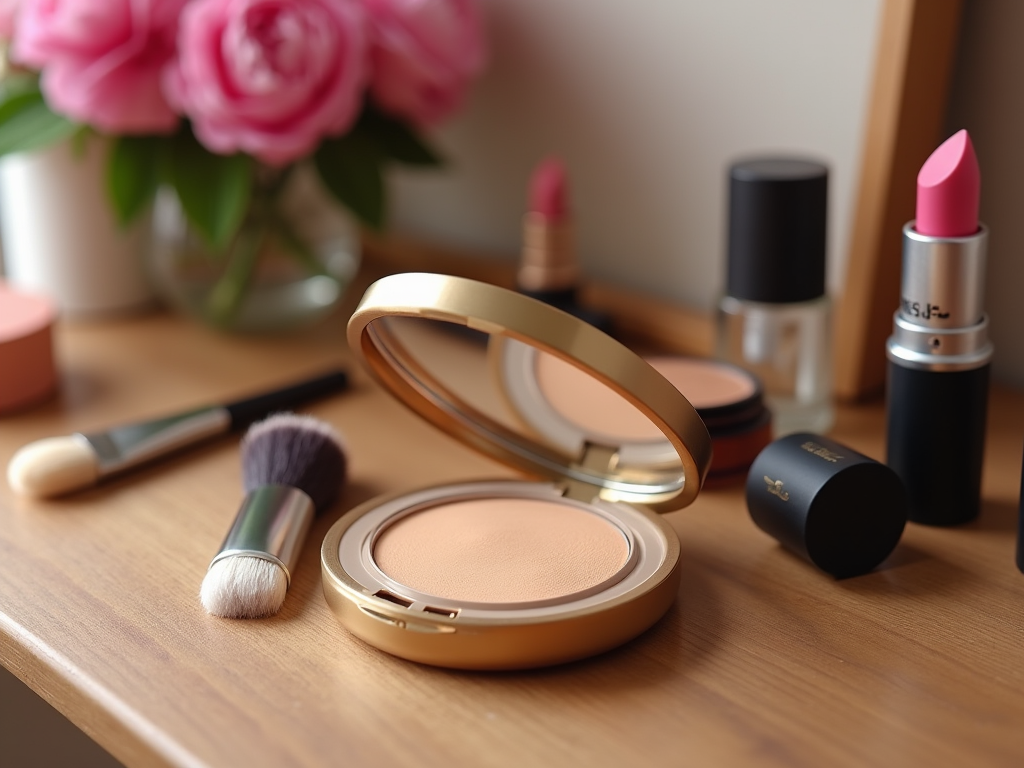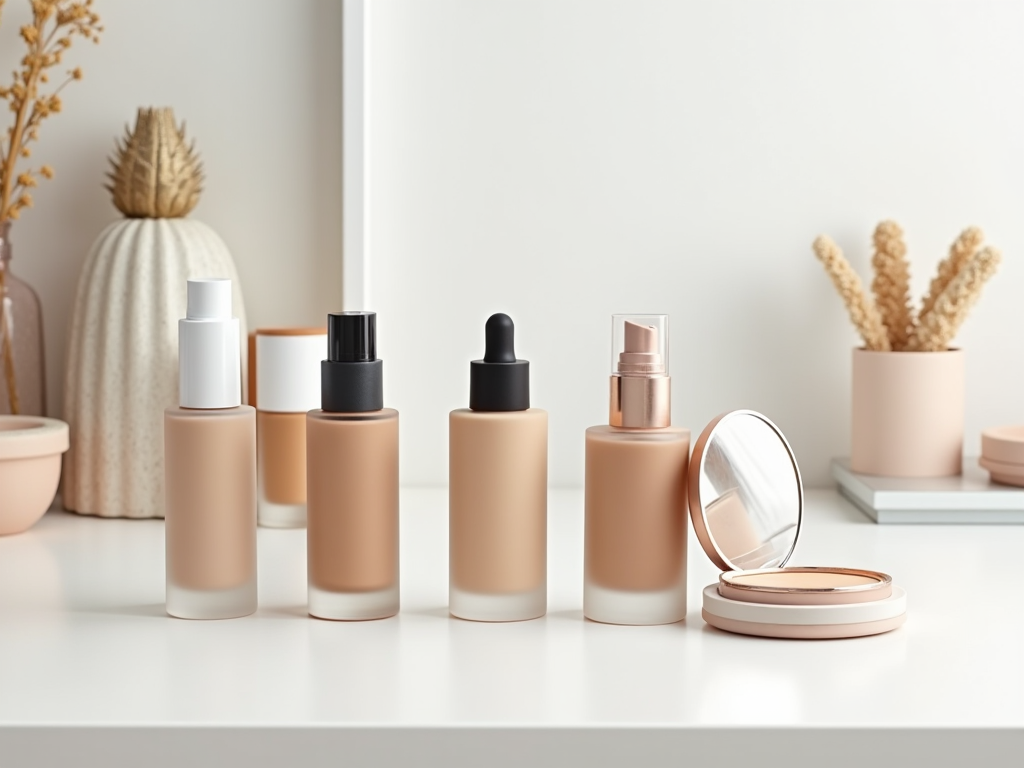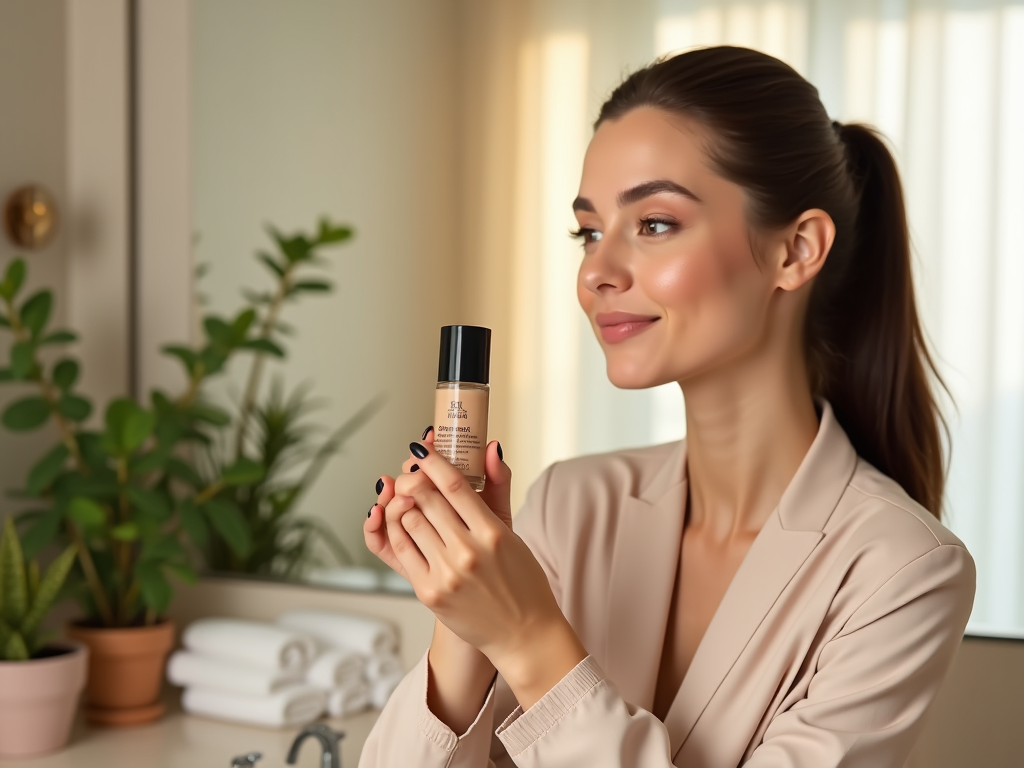Finding the right foundation can be overwhelming with the myriad of options available today. Each type of foundation serves a different purpose and is suited for different skin types and preferences. In this article, we’ll explore the seven most common types of foundation and offer guidance on selecting the perfect one for your beauty routine.
1. Liquid Foundation

Liquid foundation is a versatile and popular choice for those seeking a flawless finish. It comes in myriad formulations, ranging from light to full coverage. Depending on your skin type and desired look, liquid foundations can offer a dewy or matte finish. It’s easy to apply, allowing for an even distribution across the face, covering blemishes and evening out the skin tone. Consider whether you want a traditional formula or a long-lasting version. Users with oily skin might prefer a matte finish, while those with dry skin might opt for hydrating formulas that provide a more luminous finish.
Liquid foundations are ideal for newbies and professionals alike, as they blend effortlessly and can be applied using brushes, sponges, or even fingertips. To extend its wear, many opt to set it with a translucent powder.
2. Powder Foundation

Powder foundation is a great option for those with oily or combination skin. It helps control shine and provides a natural, matte finish. Unlike liquid foundations, powders are less prone to settling into fine lines, making them easier to touch up throughout the day. They’re perfect for a quick application and for those on the go.
Powder foundation can be found in either pressed or loose form, with pressed powders being a more portable option. To apply, a brush or sponge can be used, and it can also be layered over a liquid foundation for added coverage and setting.
3. Cream Foundation
Cream foundation is perfect for those who need heavier coverage and more moisturization. It’s best suited for dry skin types as it provides a dewy and hydrating finish. The thicker consistency ensures that it smooths over imperfections and provides a high level of coverage.
It is typically packaged in compacts or sticks and provides a more dramatic finish than powders or liquids. Be sure to set a cream foundation with a powder to enhance its longevity and to avoid any unwanted shine or streaking.
4. Stick Foundation
Stick foundations are known for their convenience, offering quick and precise application. The product comes in a cylindrical form, making it easy to carry and apply without mess. Ideal for touch-ups throughout the day, stick foundations often provide medium to full coverage.
Its solid form allows you to target specific areas or to contour and highlight with ease. They are typically creamy, making them a suitable choice for most skin types, although those with very oily skin should opt for oil-free formulas to prevent excess shine.
5. Mineral Foundation
For those who prefer a more natural makeup routine, mineral foundation offers a light, breathable option. Formulated with natural ingredients, it’s ideal for sensitive or acne-prone skin. Mineral foundation provides light to medium coverage and offers a very natural finish.
It’s available in loose powder form and can be applied using a brush for a soft, buildable coverage. The minerals used in these formulas often provide added sun protection, making them a great dual-purpose product.
Conclusion
Choosing the right foundation largely depends on your skin type, the coverage you’re seeking, and the finish you prefer. Whether you gravitate towards liquid for its versatility or seek the portability of a stick foundation, there is a product out there tailored just for you. Remember, the key to a flawless application is to match the foundation to your skin tone and type, and to consider the occasion when deciding on the intensity of the coverage. Experimenting with samples can also help you find your ideal product without the full commitment of a purchase.
Frequently Asked Questions
- What is the best foundation for oily skin? Powder foundation or a matte liquid foundation are generally best for oily skin as they control shine and offer oil-free formulations.
- Can I mix different types of foundations? Yes, mixing foundations can help achieve a customized shade or finish. For example, mixing a liquid with a little powder foundation can provide fuller coverage and a longer-lasting look.
- Is mineral foundation good for all skin types? Mineral foundation is generally considered good for most skin types, especially for sensitive or acne-prone skin due to its natural ingredients.
- How can I find my perfect foundation shade? It’s best to test foundation shades in natural light by applying a small amount to your jawline and checking for a seamless blend with your neck.
- Do I need to use a primer with foundation? While not always necessary, using a primer can help your foundation last longer and create a smoother canvas, especially if you have textured or oily skin.
